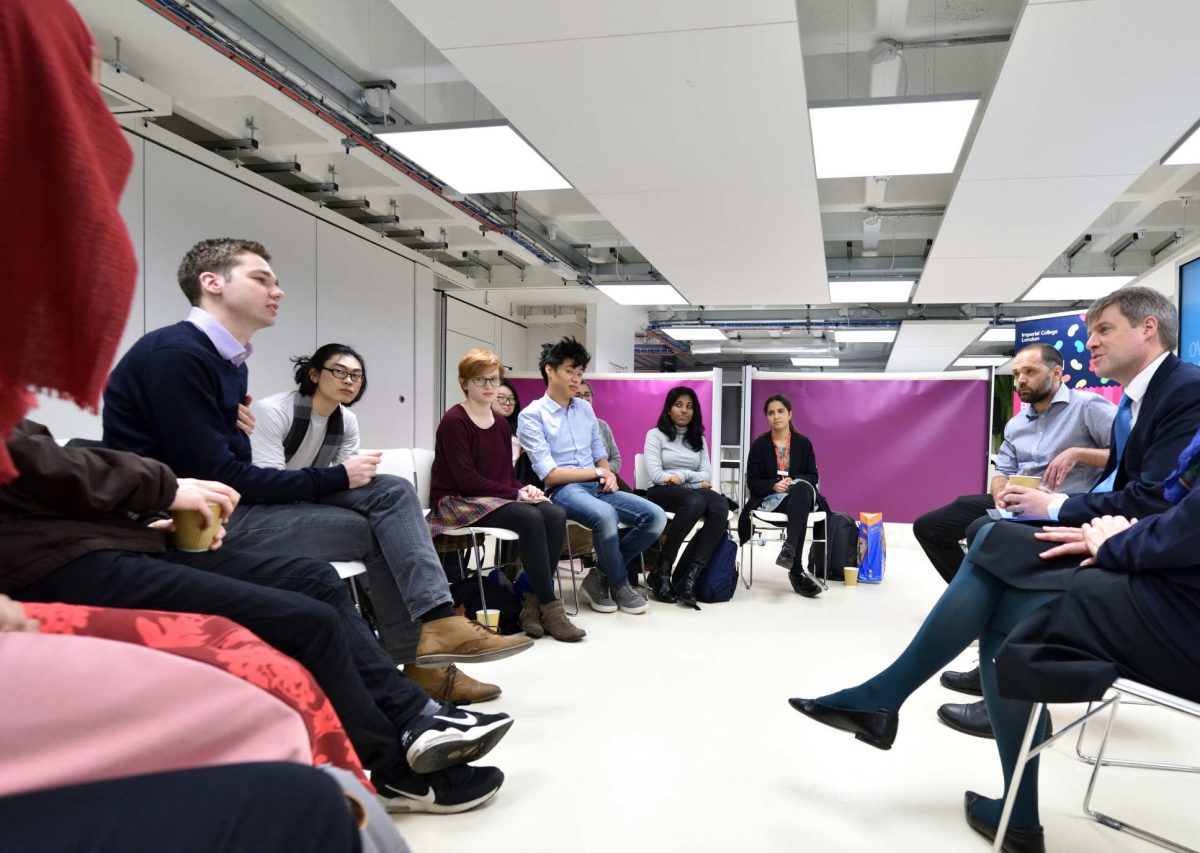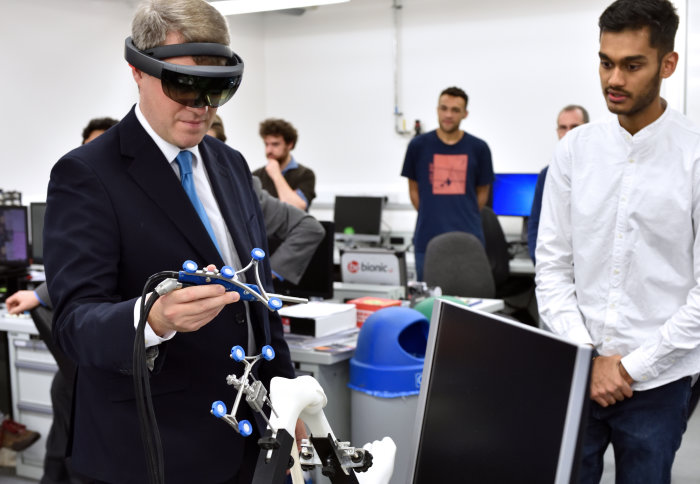

New Universities and Science Minister Chris Skidmore MP met students and saw cutting-edge research at Imperial this week.
President Alice Gast welcomed the Minister, going on to discuss the impact of entrepreneurship at Imperial on the wider economy, and the way in which universities like Imperial can play a central role in helping realise the Industrial Strategy.
Mr Skidmore, who also serves as the UK’s Space Minister, met Professor Gareth Collins, a member of the Mars InSight team that recently succeeded in broadcasting the sound of the Martian desert.
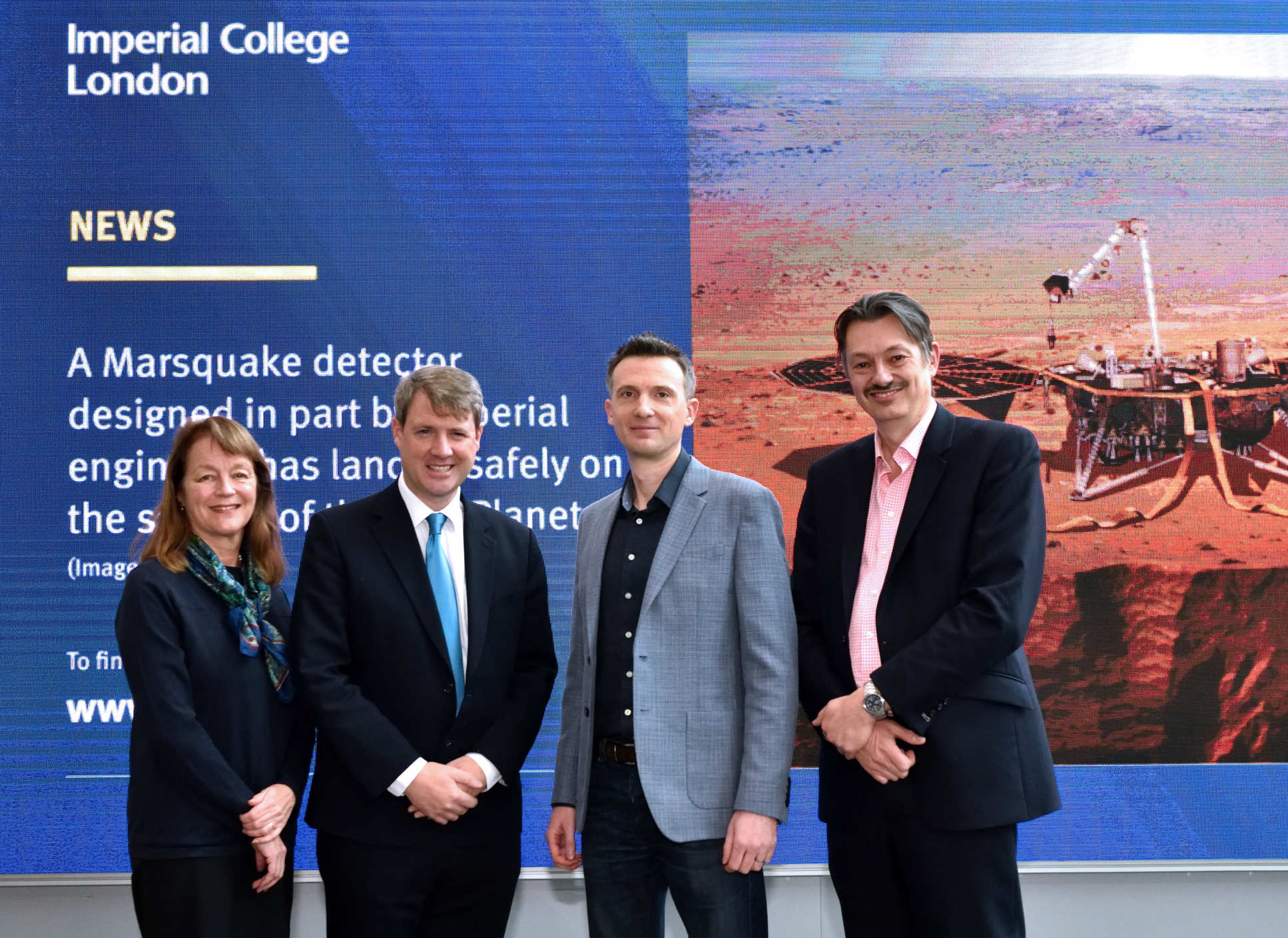 Mr Skidmore meets Professor Gareth Collins, a member of the Mars InSight team, with President Gast and Professor Nigel Brandon, Dean of the Faculty of Engineering
Mr Skidmore meets Professor Gareth Collins, a member of the Mars InSight team, with President Gast and Professor Nigel Brandon, Dean of the Faculty of Engineering
The future of medical robotics
Mr Skidmore also visited the Mechatronics in Medicine Lab, a globally renowned centre of excellence for medical robotic research. The Minister was welcomed by Professor Nigel Brandon, Dean of the Faculty of Engineering, and Professor Ferdinando Rodriguez y Baena, who leads the laboratory, and a team of researchers.
The team exhibited experimental augmented reality (AR) that integrates with surgical systems for knee replacement surgery.
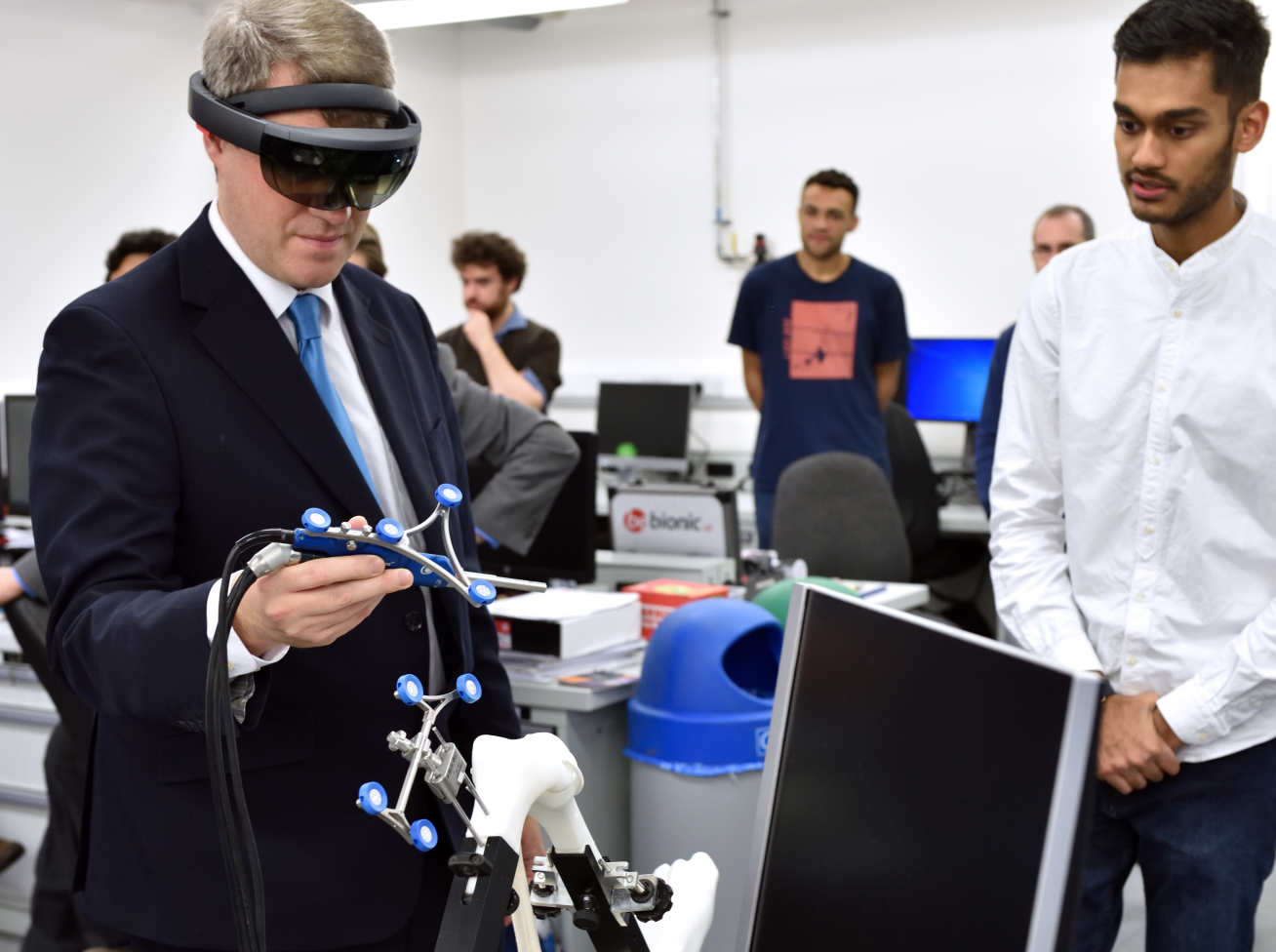 Chris Skidmore tries out an AR headset
Chris Skidmore tries out an AR headset
Under the guidance of researchers Dr Fabio Tatti and Hisham Iqbal, the Minister took part in an AR demo where he interacted with the surgical user-interface in a mixed-reality environment. Mr Skidmore saw how the technology could be of great benefit to the next generation of surgeons.
Next up was a discussion of the EDEN2020 project, which aims to develop the gold standard for one-stop diagnosis and minimally invasive treatment in neurosurgery. The Minister met researchers Dr Stefano Galvan and Marlene Pinzi, and was introduced to the lab’s signature steerable-needle system, which allows a surgeon to insert a catheter into the brain in areas which traditional methods render inaccessible, whilst avoiding obstacles (such as blood vessels and eloquent regions of the brain) by using a bio-inspired flexible probe.
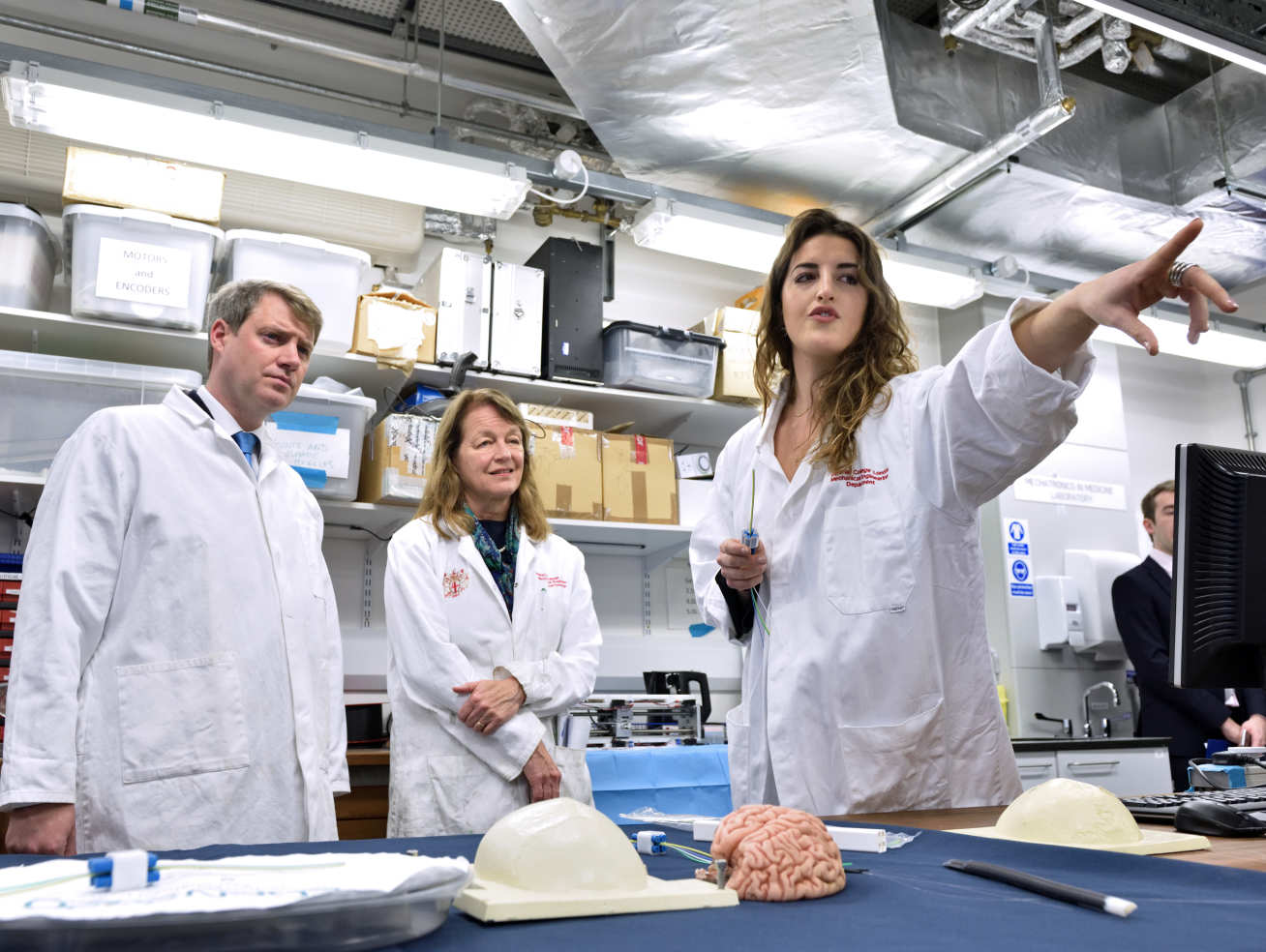 Researcher Marlene Pinzi explains the EDEN2020 project to the Universities Minister
Researcher Marlene Pinzi explains the EDEN2020 project to the Universities Minister
The tour ended with a demonstration from researcher He Liu of the proof-of-concept work behind a novel robotic smart system for surgery, capable of automatic limb tracking, obstacle avoidance, and human-robot interaction within a cluttered operating theatre. Here, the team showcased the use of depth imaging to acquire three dimensional information about the operating theatre, and holograms overlaid on the target limb, which were updated dynamically to enhance surgical guidance for the human operator.
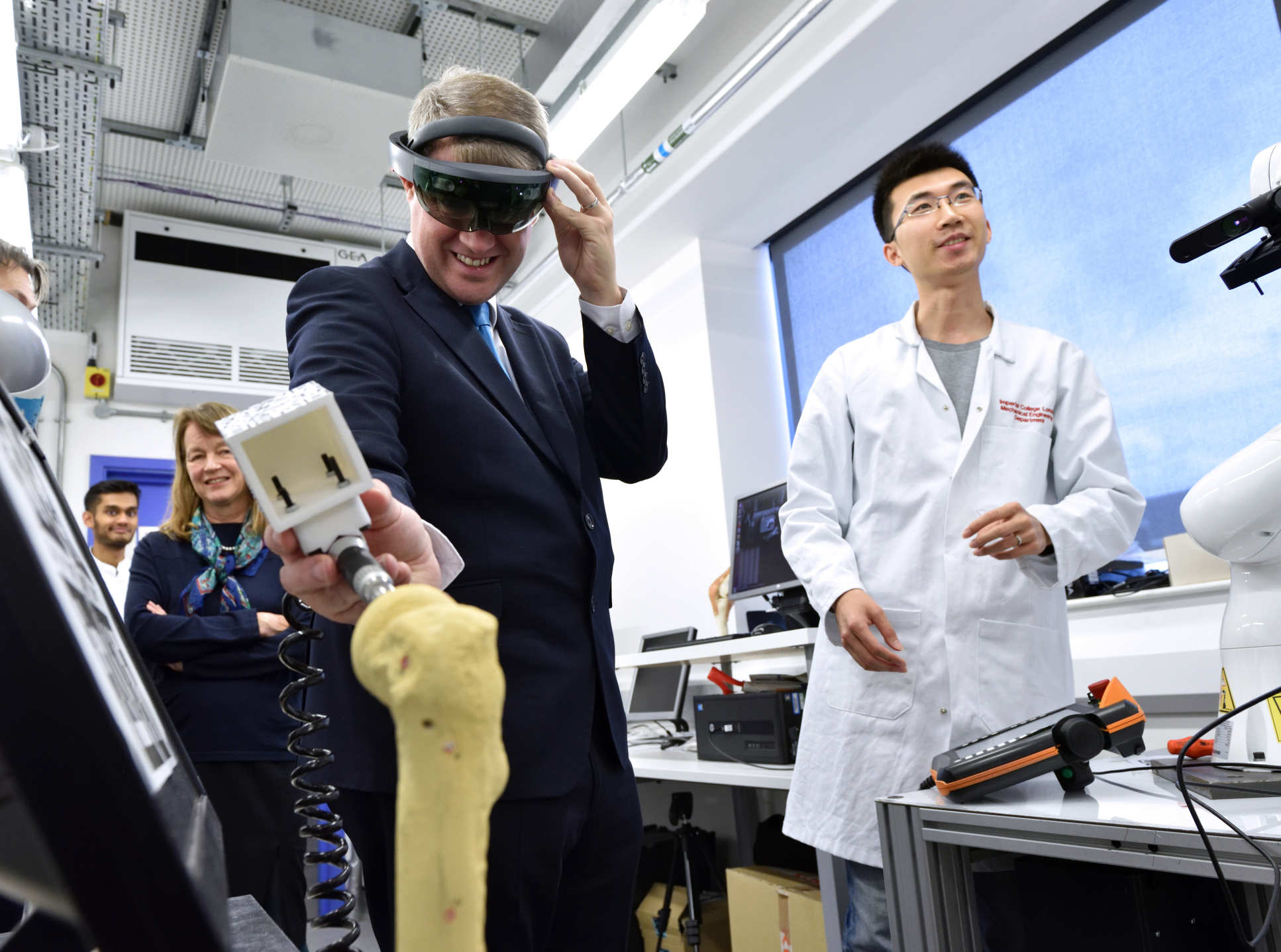 Chris Skidmore interacts with research prototypes in the Mechatronics in Medicine La
Chris Skidmore interacts with research prototypes in the Mechatronics in Medicine La
A culture of enterprise and making things happen
“Having the opportunity to listen to your concerns helps me build my case and take things back to Westminster.” Chris Skidmore MP Universities and Science Minister, talking to Imperial students
The Minister was welcomed to the Enterprise Lab, Imperial’s flagship centre for student innovators and entrepreneurs, and met 11 Imperial students from a variety of departments. The students discussed Imperial’s culture of innovation and entrepreneurship, workload and pressures facing young people such as the cost of living, finding suitable accommodation in London, and the interactions between social media usage and mental health.
Mr Skidmore said that the student experience is one of his priorities, and that he is committed to ensuring students can complete their course and have appropriate support throughout their studies. “Having the opportunity to listen to your concerns helps me build my case and take things back to Westminster,” the Minister told the students.
“I can’t begin to tell you how excited I am to be at Imperial… the transformation in teaching has been huge Mala Mawkin Final year medical student
Design Engineering undergraduate Michael Hofmann talked about Imperial’s “culture of enterprise and making things happen”. He told Mr Skidmore that the majority of postgraduate Master’s students in Design Engineering go on to found their own start-ups. All undergraduates in their final year have to pitch their own start-up idea at the Enterprise Lab as part of their Enterprise Rollout module.
Mala Mawkin, a final-year medical student, who was recently named in Forbes’ 30 Under 30 Europe 2018 list for her research at the European Space Agency (ESA) and for her work with healthcare start-ups to improve NHS services, told the Minister: “I can’t begin to tell you how excited I am to be at Imperial. Even in the six years I have been here, the transformation has been huge. We have moved from traditional lecture style teaching to innovative e-learning methods and there is so much yet to come in the pipeline too!”
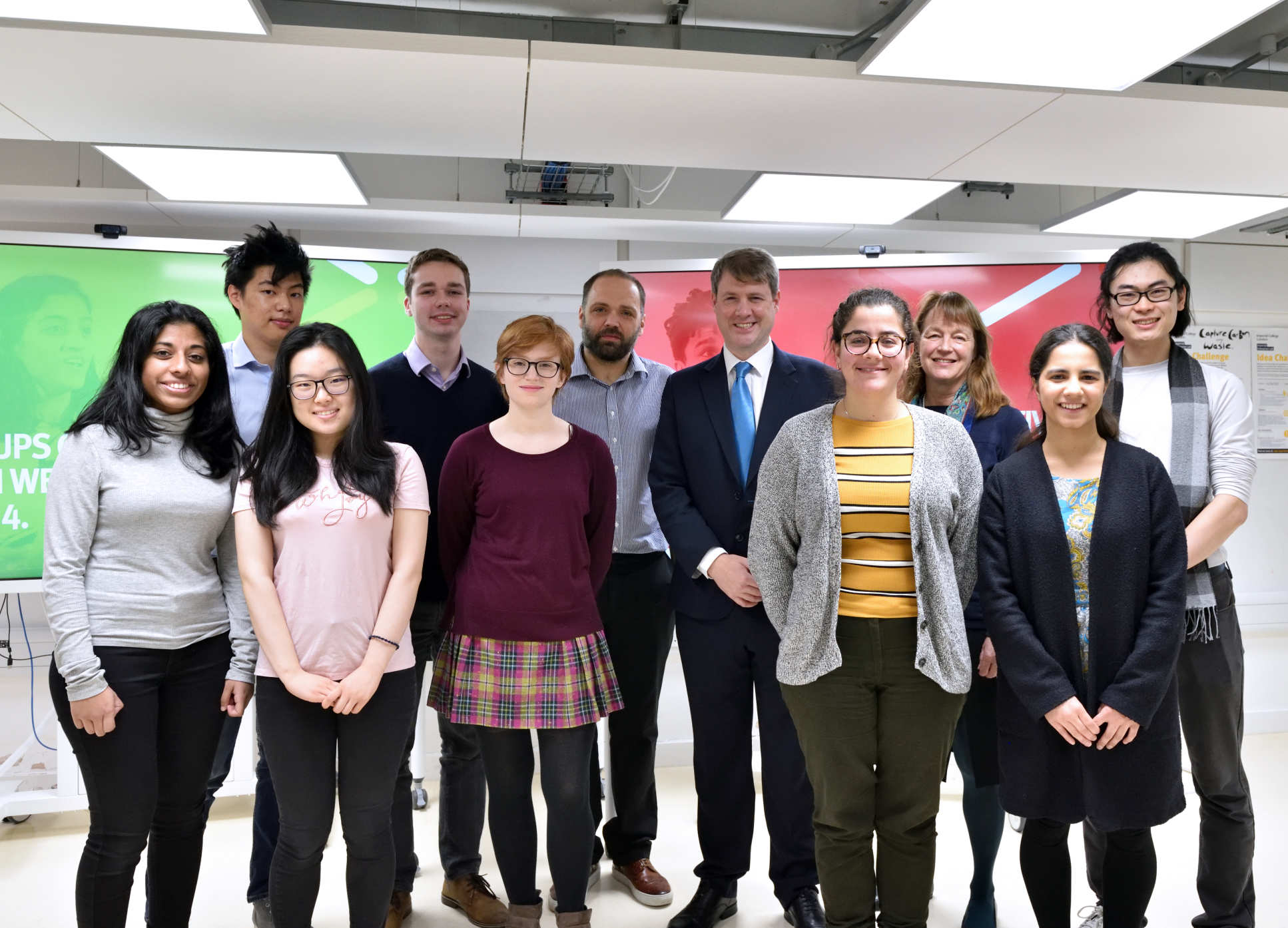 The Universities Minister, President Gast and students in the Enterprise Lab
The Universities Minister, President Gast and students in the Enterprise Lab
The Minister was keen to find out more about student start-ups, and Biological Sciences undergraduate Yizhou Yu explained his own start-up called SleepPod, part of the wider campaign SleepImperial, a next generation portable device that optimises sleeping time, temperature, posture, odour, etc. for each individual user using AI. Yizhou also talked about his intention to go into academia to “impart knowledge to improve public health.”
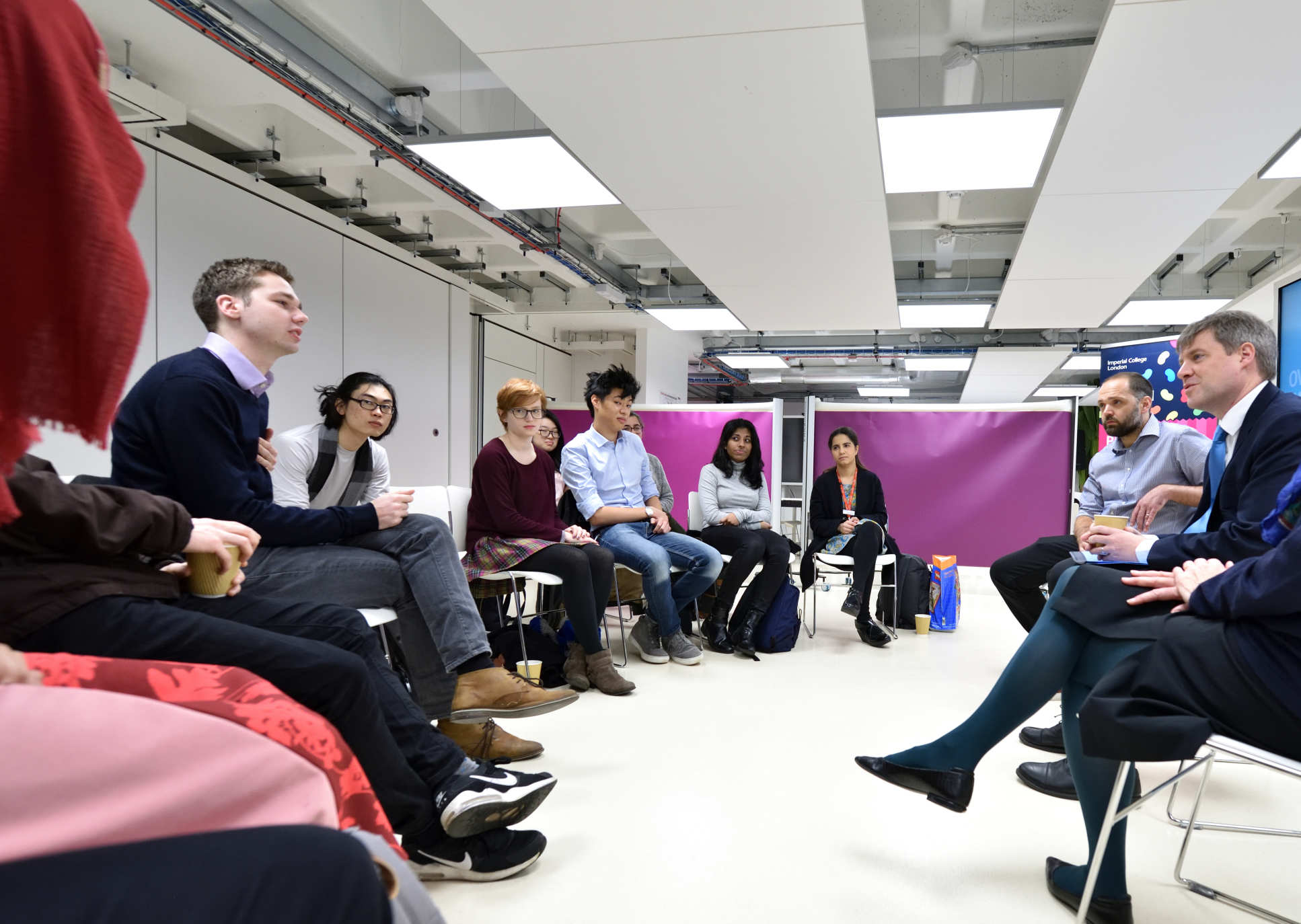 Mr Skidmore chatted to students in the Enterprise Lab
Mr Skidmore chatted to students in the Enterprise Lab
Imperial’s Director of Entrepreneurship, Ben Mumby-Croft, also joined the morning’s discussion. He said: “We were delighted to welcome the Minister to the Enterprise Lab. As an institution, Imperial is passionate about inspiring, educating and nurturing the next generation of student innovators and entrepreneurs, so it was really great to see the students chat with the Minister about their start-ups.”
Chris Skidmore is one of a number of government ministers to visit Imperial since the start of the academic year, including Immigration Minister Caroline Nokes and Education Secretary Damian Hinds.

